Small Town Salvation
An outsider arrives in dying Greenville with a mission to restore it
By Emma Witmer | October 28, 2019
Greenville, Fla. — When I was young, Sunday mornings meant a drive to the white church on the hill. It was a two-mile ride down Highway 90, a right turn at the second caution light and a quick stop at the train track crossing that separated the business district from the part of town I wasn’t allowed to drive through at night.
Greenville isn’t much of a town on first glance. It commemorates its claim to fame as the hometown of Ray Charles with an exuberantly expressive bronze statue in the center of Haffye Hays Park. The casual observer might comment on a nearby placid pond, a few rows of buildings, a post office and about a dozen churches with about a dozen members each — the hallmarks of Small Town America.
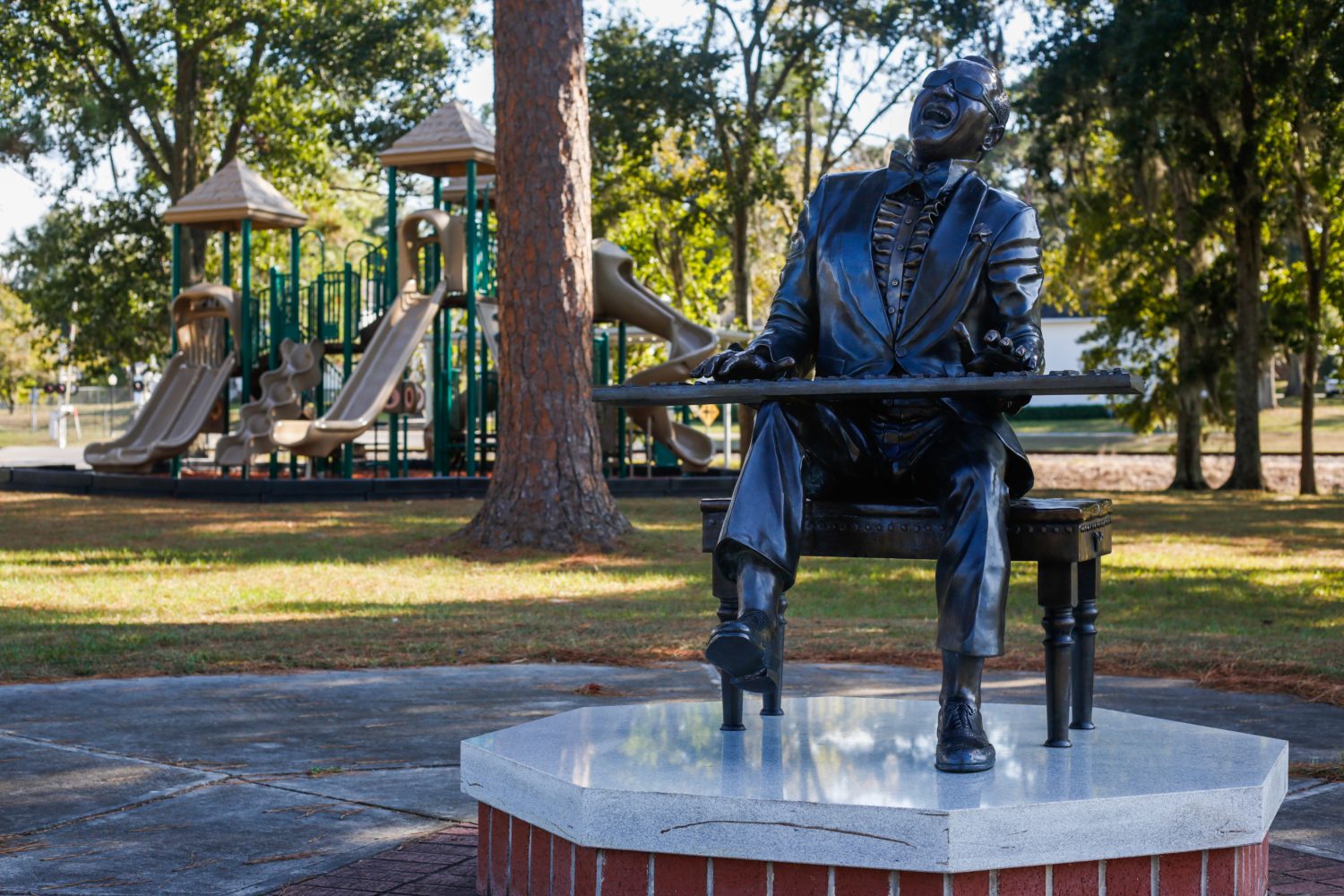
But if you grew up here as I did at the start of this century, you knew the shops that lined the three narrow downtown streets were nearly empty, save a Dollar General and a couple of gas stations. You knew that, just out of view, there were dozens of mobile homes missing roofs or floors. And that there was a shooting a year ago, a month ago or maybe even yesterday.
The old white folks, like my childhood church congregation and family, like to remember Greenville in its prime: with a soda shop, grocery store and high school, but no one has seen it like that in nearly half a century.
During the first World War, the local railroad depot planted the timber and farming families of old Greenville in high cotton, and small businesses thrived. My great-grandfather’s store sold everything from shoes to onions. Life was as simple as a square mile, the city limits anchored to the east-west highway.
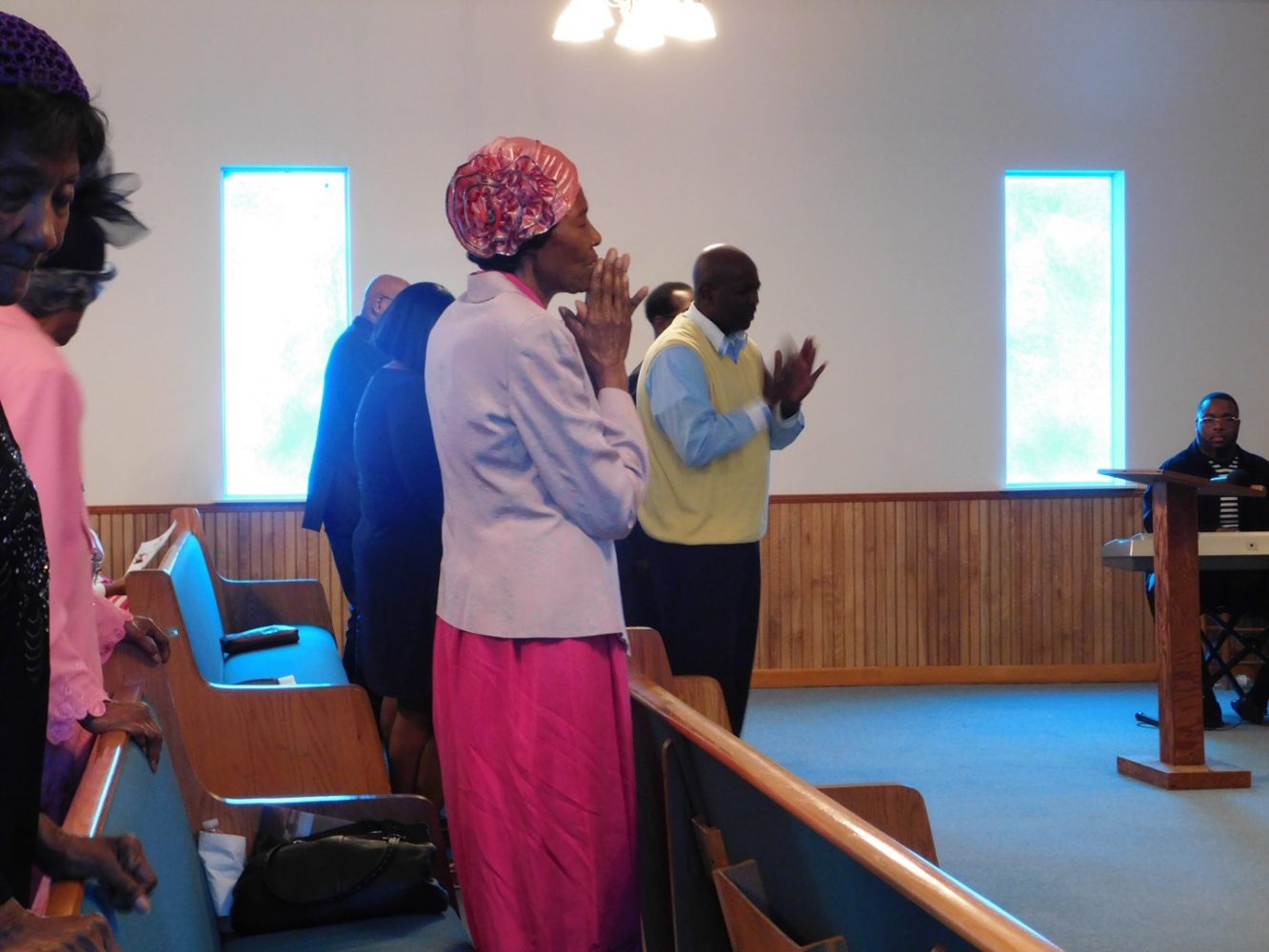
The old black folks, like Elesta Pritchett, remember Greenville differently. Most lived and worked in small homes on the edges of white-owned tobacco farms and saw mills. Beyond the farms, white and black people did not speak. Jim Crow laws thrived well into the 20th century, and formed two distinct Greenvilles with different churches, different schools and different risks.
Pritchett has lived here for the better part of a century. She’s 89 and remembers Greenville as a thriving town in which Saturdays meant a trip into town for hot dogs from Lamont’s. It was like the carnival, a place to laugh and meet boys, a haven from the week’s labor of caring for her siblings and cousins. Saturdays were somewhat safe. Weekdays were not. Local laws meant a young black man could be jailed for walking the streets instead of working, and if he raised his eyes to meet the gaze of a white woman, there were severe consequences. I remember hearing horrific stories of police brutality and lynchings resulting from false accusations.
Back then, Highway 90 was the best bet for travel, burning its way across the Florida Panhandle and forming main streets from Pensacola to Tallahassee before dropping off into the Atlantic in Jacksonville. But, the 1960s ushered in the construction of Interstate 10, a much faster way to travel. Greenville became no more than an easily forgotten exit.
Local businesses threw up their hands. The clinic disappeared. The high school shuttered, and the former Pirates were bussed off to county or private schools, depending on their parents’ views on desegregation. But the interstate was hardly Greenville’s first problem. Nor would it be the last.
The town’s population has been in steady decline over the past 60 years, peaking at 1,318 in the 1960 census and dropping below 800 in 2018. About 70 percent of Greenville’s declining population is black, and more than 40 percent live in poverty. In the past five years alone, Madison County’s population saw a 3.5 percent decline, even as Florida’s total population grew by 7.4 percent.
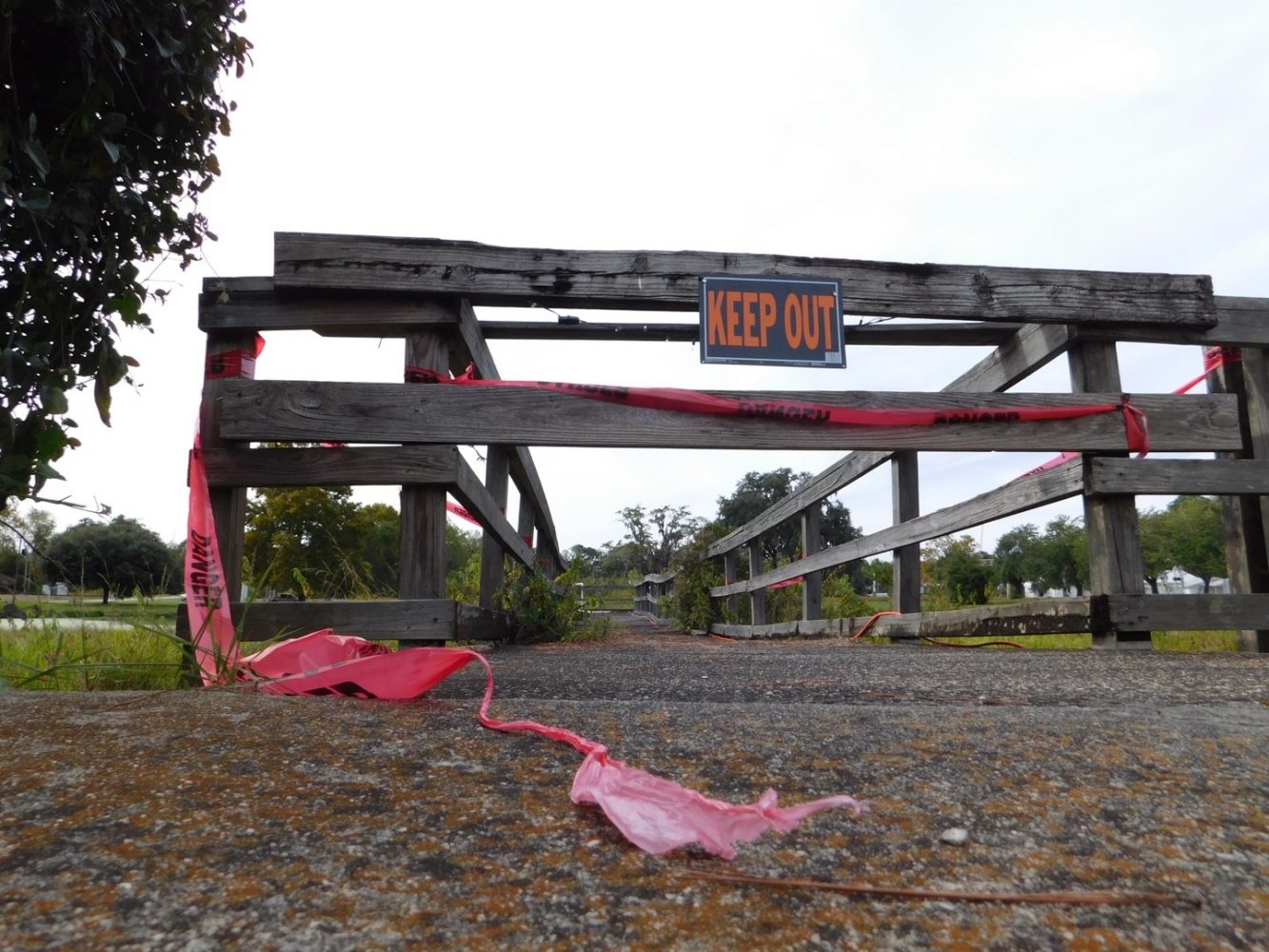
With poverty often comes crime. Madison County’s violent crime rate was more than double that of the state in 2017. For every 1,000 people, 11 violent crimes were committed. Statewide, that number was about four. On my 19th birthday in February of that same year, a drive-by shooting at the intersection of Church Avenue and Obadiah Street in Greenville sent five victims to the hospital. Stray bullets went whizzing through a neighboring couple’s living room as they got ready for bed.
Greenville has been sick for decades with little to no treatment. It has become chaotically self-contained, wary of outside intrusion, but in desperate need of help.
Greenville has been sick for decades with little to no treatment. It has become chaotically self-contained, wary of outside intrusion, but in desperate need of help. As the world outside grew and changed, Greenville contracted, whittling down into a strange and sleepy town on the brink of fading away.
Perhaps Greenville is not unique in its decline; the Florida Panhandle’s swamps, pines and Spanish moss entangle a number of such towns. But for me, this is not just any other town. It’s home.
I wasn’t sure whether Greenville would ever rise again or fall further until two years ago when something I had begun to think impossible occurred. For the first time, I felt that perhaps things could transform. I felt hope.
It came in the form of an outsider; a man who had never laid eyes on my little town before. But he was someone who possessed the ability to help, someone who might actually be able to foment change.
Edward Walker Dean arrived in Greenville in October 2017. He didn’t know the people or the players. He didn’t know the quirky rhythms of my hometown. He was a black man who found himself in a town where race and power set the undercurrent for nearly every conflict and every political decision.
Dean admits today, some two years into his job as town manager, that he didn’t know what he was getting into when he accepted it. In time though, he would come to see the salvation of Greenville as his divine calling, a righteous battle for the soul of a dying town.
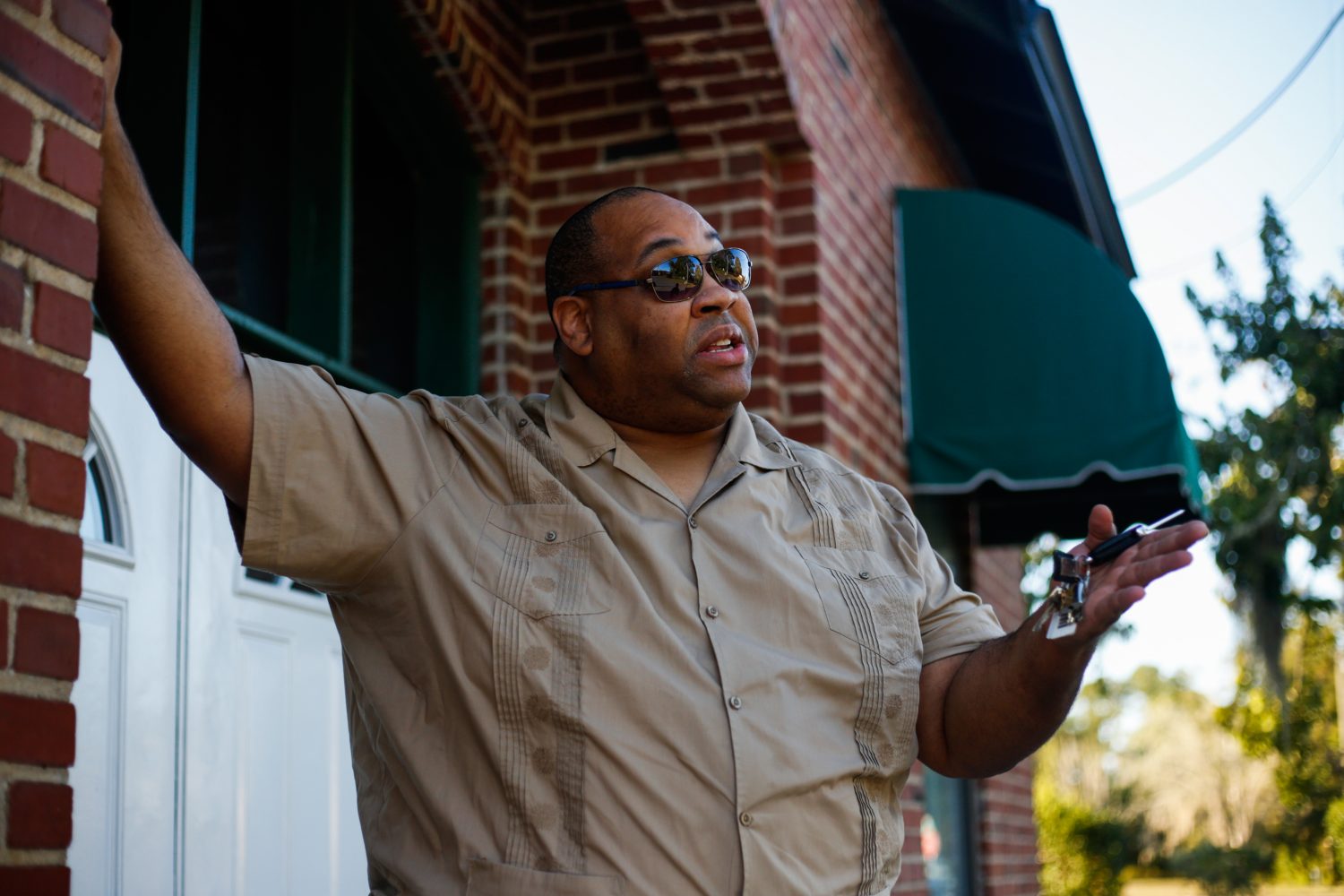
Big man, big dreams
On a glaring spring morning, Dean finds himself in the thick of it, representing Greenville for the first time at the general body meeting for the North Florida Economic Development Partnership, an organization dedicated to bringing businesses in to industrialize a rural 14-county region.
Men and women, but mostly men, weave in and out of the folding tables forming neat rows before the podium at the head of the tennis-court sized room. Some are in suits and ties. Others wear boots and jeans beneath their button-ups. Some hold their cellphones in hand. Others holstered them to their belts, ready to draw if an emergency arises back at the farm.
In rooms like these, it’s all about who you know.
Dean slides into the meeting 15 minutes late and just in time for introductions. The council members introduce themselves and their communities, popping up and sinking down like choreographed prairie dogs. Dean rises last, with labored breath.
“Edward Dean,” he says, adding at a lower octave, “City of Greenville.”
Easily 6 feet tall, the man is built like a freight train. Even in his collared shirt and slacks, it’s not hard to imagine Dean in helmet-to-cleat green and orange, holding down the line for the Florida A&M University football team back in 1995. He’s a fast talker with a penchant for sunglasses and a hearty laugh. This laugh will come later, though, as Dean mingles, employing his characteristic charm to expand his rolodex of allies and friends. For now, he addresses the room with a formidable professionalism that seems foreign to the Greenville name.
This is a major opportunity to win support for his plans to rebuild the community. I have heard bits and pieces of what he has done and what he plans to do, but without millions in additional grant money, the town’s meager budget of some $1.3 million will collapse under the weight of Dean’s vision.
While the council leaders rattle off a litany of their accomplishments, Dean uses his back-of-the-room vantage point to tell me about the key players present today. His nudges and nods are interspersed with nervous tics, dabbing his forehead and twisting his wrists beneath the table.
A nudge. See him? A nod. That’s Sean Lewis, the community Program manager for the Department of Economic Opportunity. He helped Greenville get a grant.
A nudge. And her? A nod. Kaitlynn Culpepper. She could get Greenville $300,000 for a grocery store. The final nod goes to a petite older woman in a black visor. She is the most important person in this room. She knows everyone. Her name is Diane Scholz, the Director of Rural Economic Development Services.
The PowerPoint slide changes, and the list of final speakers goes up. The Town of Greenville is not included, and Dean shifts uncomfortably in his chair. We share a look; Greenville has been forgotten again. The institutionalized ailments plaguing the town have made Greenville an eyesore for the region, preferably ignored when discussing the flourishing future of North Florida economics. This time, however, Greenville isn’t going down without a fight.
Quietly, Scholz slips to the front of the room, whispers in a few ears, and Dean is called to the front to speak. I can see that Dean has already made Greenville a few powerful friends.
This man who has lobbied in Washington and worked with members of Congress stands now, in the interest of my home, the poorest town in the poorest county in Florida.
He takes the podium and dabs his forehead one last time. Whatever nerves that remained are wiped away with the sweat on his brow. This man who has lobbied in Washington and worked with members of Congress stands now, in the interest of my home, the poorest town in the poorest county in Florida.
Dean announces that the $1.705 million in grant money he has received will go towards his Greenville Restoring Hope Project.
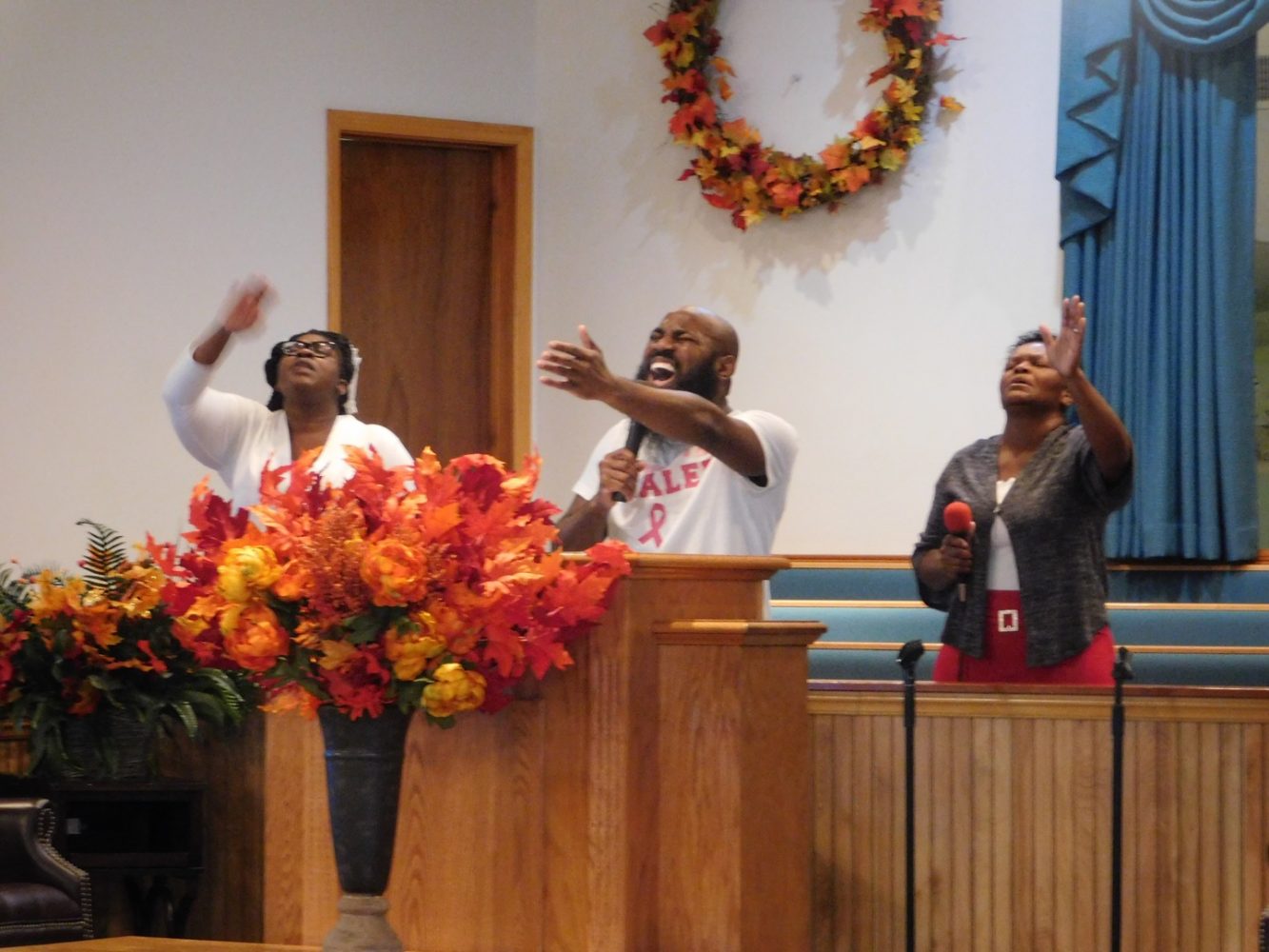
An audible “Mmm” swells up in the audience. Those who know Greenville know that hope rarely leaves the pulpit on Sunday morning service.
But on this day, Dean is determined to bring hope back to Greenville in the form of a simple thing — a grocery store. He sees it as a fixture around which to build a new town.
Those who know Greenville know that hope rarely leaves the pulpit on Sunday morning service
Aside from the aging cereal boxes, canned meats and frozen pizzas available at the Dollar General, Greenville residents have to drive into neighboring towns for access to produce, fresh meat and other basic needs.
“We are currently a food desert, even though we are not technically designated a food desert. We don’t have any grocery store 13 miles any way from us.”
What’s more, this grocery store will have a pharmacy and a minute-clinic, other resources that are far-flung from the isolated community. Dean tells the council he is going to build a community center with a gym, meeting area, kitchen and computers. And he plans to bring in a mattress factory that will create 170 jobs.
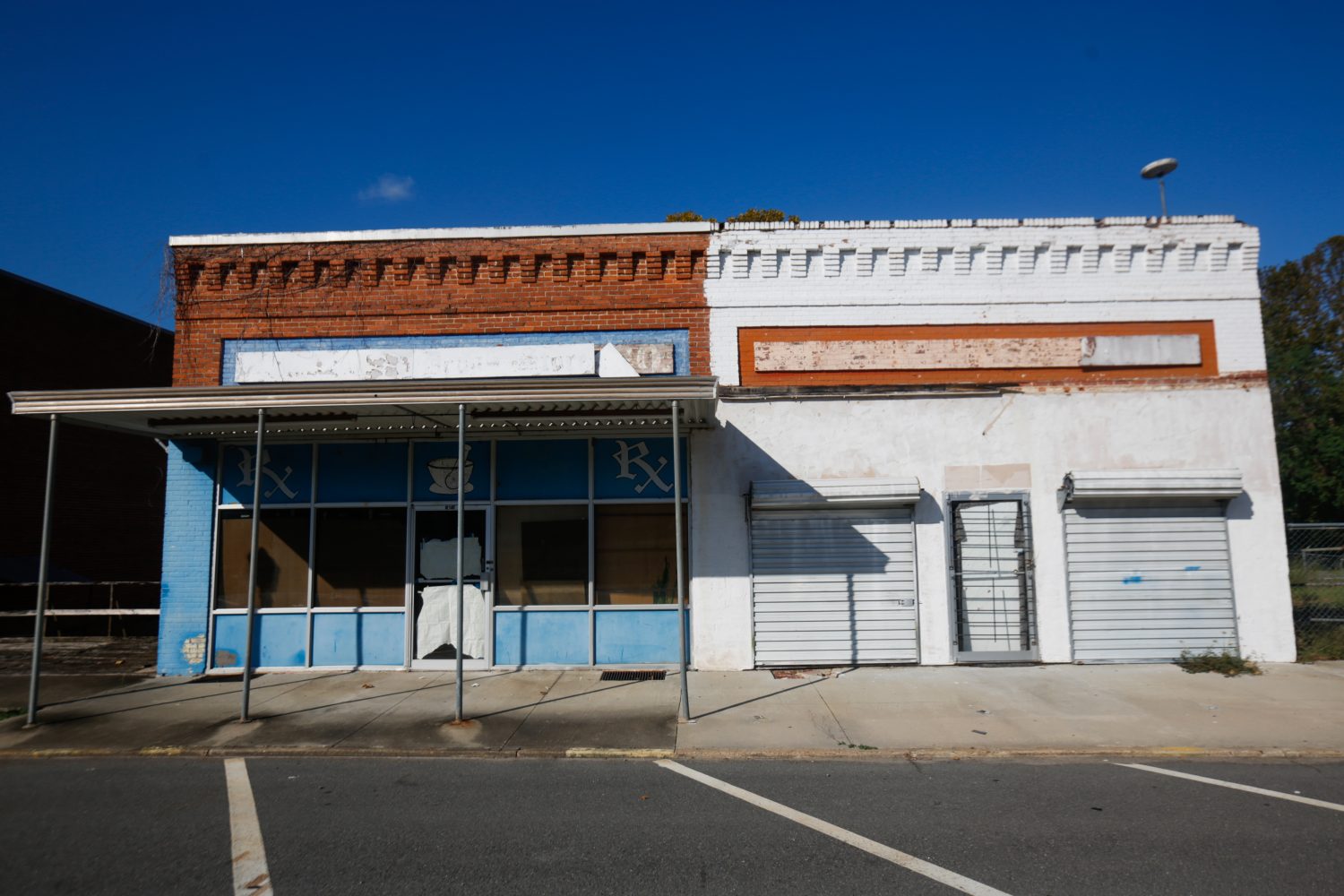
He has other grand ideas as well: increase Greenville’s tax base through the annexation of property just outside the city limits; move additional homes from relying on a home septic system to the town’s sewer system; update cracked and crumbling roads; and bring in a charter school to replace the elementary school that faces a forced closing by the county.
“I think that he is literally going to make a world of difference,” Sholz tells me after the meeting as members file to the back of the room for heaping helpings of mashed potatoes, fried chicken and peach cobbler.
“He has so much energy and he’s got so many great ideas,” she says. “But he’s having a hard time corralling them.”
I’m not sure whether “them” is a reference to Dean’s plans or to folks who may oppose them. But I am certain time will tell.
‘I saw a job that had your name written all over it’
Inside Greenville’s town hall, Dean’s office is cluttered with evidence that testifies to the truth in his words. There are architects’ renderings of the grocery store and community center. There are grant applications awaiting approval. There are facts and figures to spare.
But restoring hope is no small feat in a town reeling from poverty. Some kids roam unsupervised after dark, then show up at school the next day in the same dirty uniform and with bags under their eyes. Many young men dream of a professional football career that might launch their names to stardom like Redskins running back Chris Thompson, a Greenville hero who went pro by means of football scholarship at Florida State.

Dean is familiar with the prospects of a secure future kicked off by football. His first job was selling bottled Cokes at University of Florida football games. He maneuvered under the bleachers, sliding his tray through the grates and calling out to the students standing in their seats. “Dollar for a cold coke?”
Years later, that same sport would send Dean to college and set him on a course to build his life.
When he moved from Gainesville to Tallahassee for college, Dean undoubtedly passed the Greenville exit. Maybe he stopped for gas, but he doesn’t recall.
Dean earned a degree in social work from Florida A&M and a master’s in African American community involvement from Ohio State. After a brief stint in law school, he had a son and dropped out to care for his family. He worked on political campaigns including Rep. Bill Nelson’s successful run for the Senate in 2000. Eventually Dean became a lobbyist, representing FAMU in D.C. and later branching out on his own.
Dean was a North Florida evacuee, climbing the ladder inside the Beltway. In time, though, he began to feel unsatisfied with his career as a lobbyist. It was a job that paid him decent wages, but that was all it was.
Then he got a call from his friend, “Fat Daddy,” who told him he’d seen a job that had Dean’s name written all over it.
“I want you to apply to be the city manager in Haines City,” his friend said.
Yes! That’s what I should be doing.
Something switched back on in Dean’s brain. “Yes! That’s what I should be doing.”
The idle suggestion burned away the fog that had formed between Dean’s career and what he had been passionate about in school. Haines City, a small community nestled between Orlando and Tampa, could afford Dean a chance to not only advance that community, but establish himself in a region with exponential room for growth.
He didn’t get the Haines City job, but his course was permanently altered. When a temporary town manager position popped up in Greenville some months later, Dean decided it would be the perfect stepping-stone to a more urban position one day. Six months in Greenville would give him the experience he needed to move up the ladder. The state capital, Tallahassee, was only 30 minutes away, he reasoned – and applied.
Soon after, Dean got a call from Greenville’s town clerk – and my step-grandmother — Kim Reams. The position was permanent, not temporary, but it could be his if he wanted it. A couple of interviews and a town council vote later, Dean packed up and moved to Greenville.
It wasn’t at all what Dean expected; it was hardly the Tallahassee suburb he had envisioned. Still, he reasoned, this was a community he could help transform. This could be his calling, his ministry.
He was a newcomer to the town, and with that came a set of advantages. He did not grow up watching waves of apathy and tragedy wear away this once thriving community. He had no interest in recreating the past longed for by some and no fear of upsetting the status quo. The county paper has sporadically chronicled the drama in Greenville Town Hall, from council meetings overrun with personal jabs and interruptions from the crowd, to ethics violations, personal vendettas and confrontations that resulted in frantic 911 calls.
Dean’s plans were grand and so was the budget attached to them. He knew he had to garner the support from the council and forge some semblance of unity. He saw himself as a visionary, but also as a gardener testing the elements of public need and tearing away any vegetation that could choke out the seeds he wanted to plant.
Still, the roots of some weeds grow so deep that they create their own ecosystem.
Still, the roots of some weeds grow so deep that they create their own ecosystem. Dean knows he faces fierce opposition from certain sectors of the community. Like other small Southern cities, Greenville, I believe, has been hampered in progress by the same sort of recalcitrance. Change, or lack thereof, is a platform as old as time, particularly in small-town politics.
While many Greenville residents have turned their eyes away from the problems of their town, others have stepped into the power vacuum. Dean quickly realized this is not a power easily parted with, but he believes that if he can reignite the hope for a better future, the town will stand behind him. He eyes an opportunity to do just that in Greenville’s town council election. Up for grabs are two seats that could help pave the way for change.

A key vote
On the morning of the vote, Town Hall is quiet, save the ticking of the wall clock in the town council meeting room. By 8:30, eight people have voted, and the small hand points straight down to a plaque below with a quote from Abraham Lincoln:
We will be respectful of one another even when we disagree
We will direct all comments to the issues
We will avoid personal attacks
“Politeness costs so little.”
Town Hall has hummed with nervous apprehension for days. Calvin Malone and Brittni Brown face Bobby Hutchinson and Barbara Dansey respectively in the race for two town council seats. Malone and Dansey are the incumbents.
This election, and its impact on Dean, are as much a product of the past as the present, and everyone has their own version of history.
Before Dean took his place as town manager, a volatile power struggle erupted after a council member refused to vacate his seat after repeated absences, despite the rules outlined in the town charter. This controversy split the council, pitting the councilman’s supporters against Reams, the town clerk who, under the advice of a lawyer, stopped signing his paychecks.
What followed was a verbal altercation in town hall. Malone, who was then mayor, and Councilwoman Brandi Seabrooks, whose sister is Brittni Brown, became hostile, according to a police report. They demanded Reams’ personnel file when she refused to sign the check.
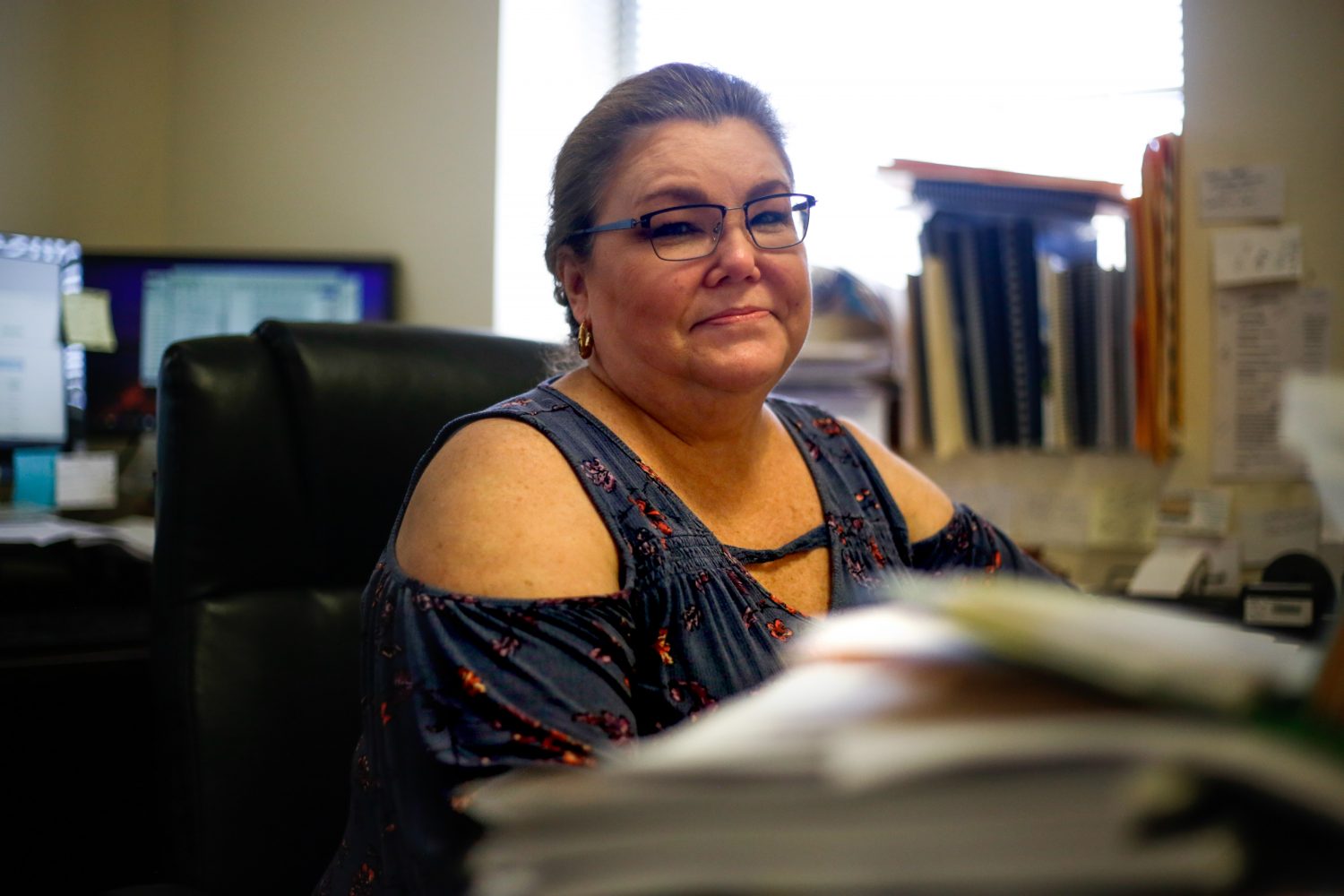
Accusations of corruption permeated the affair, lawyers were hired, and Reams opened an ethics investigation into the town council through the governor’s office. Malone, who is black, portrayed Reams as a strong-arming representative of the town’s influential white families. Reams argued she was upholding the tenants of the town charter. Seabrooks left office afterwards but Malone and Reams remained, at odds but neither possessing the power to oust the other.
Malone initially welcomed the new town manager but he grew impatient with Dean, mainly over his growing professional relationship with Reams, the town clerk. Malone began to see Dean as a power hungry newcomer to the community. Brittni Brown shared this concern.
Dean knows Greenville residents who support Malone and Brown see him squarely as an outsider. In his short time as town manager, Dean says he has exposed drinking and abuse of resources in the town’s volunteer fire department, which led to the replacement of local firefighters with Madison County employees. His ambitious vision for change and a no-nonsense approach to governing has earned him a few foes.
Dean’s name is not on the ballot but he feels he’s got a target on his back. As we head out to observe the vote count, Dean tells me he fears he will be ousted if his detractors win seats in this election.
By the time the polls close at 7, 161 votes have been cast. Malone has won by 13 votes; Brown by 24. They are the two people on the council who don’t always see things Dean’s way. Dean doesn’t know how he will forge ahead.
The road to salvation for my little town just got a whole lot bumpier.
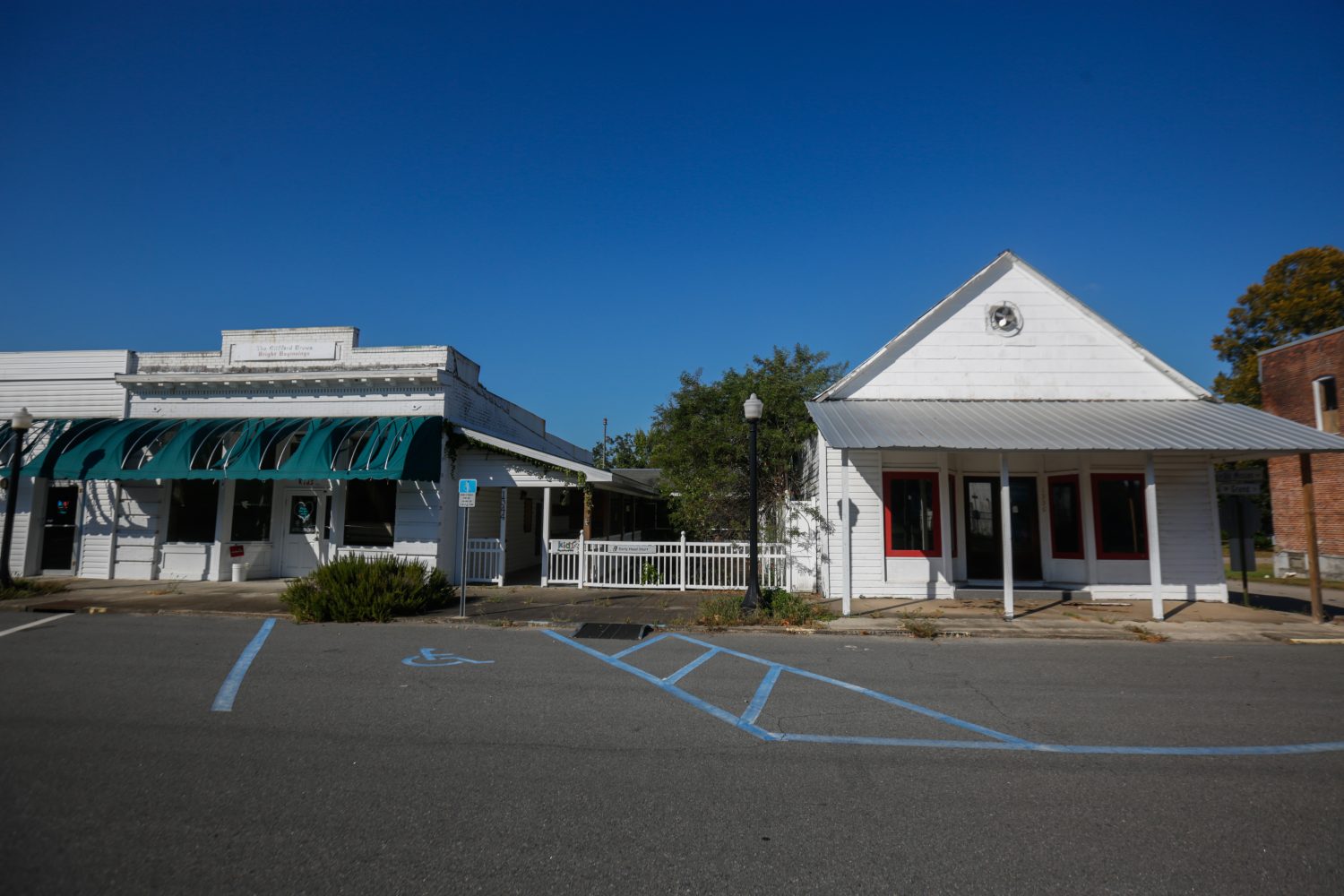
The frog in the kettle
Not one to give up without a fight, Dean labors on with his plans.
He speaks with grant advisors, architects and engineers to keep the grocery store and community center on track. Dean prefers to meet them on Tuesdays, so that when the bartering for money and contracts is done, he can take them out to O’Neal’s Country Buffet in Madison for the special that day: smoked chicken.
Dean’s hours at the office seem to grow longer every day; his dark blue Hyundai can be seen parked outside town hall as late as 2 in the morning.
Grab someone off the street and they’ll likely tell you Dean is a godsend. They’ll tell you how vital it is for their children to have a safe place to go to do homework or how desperately they want to buy fresh produce at a grocery store in downtown. Their urgency is apparent a few weeks later when there is standing room only at a town council meeting, the first with the newly elected members.
Dean has signed a preliminary contract for the town to buy two tired downtown buildings that will be torn down to build a grocery. But there’s a catch. One of the properties is owned by Reams, my step-grandmother. That presents a potential conflict of interest since she is the town clerk and, in turn, a potential lawsuit. An emergency meeting has been called to address the problem.
They’ve lined up in everything from pajamas to business attire to scribble down their names for public comment.
It is clear that the citizens of Greenville have something to say; they’ve lined up in everything from pajamas to business attire to scribble down their names for public comment.
Simply put, the state annex code prohibits purchases between the city and a city employee unless that is the only viable option, the “sole source.” Seemingly, two options lie ahead: move forward with the contract, or wait to review an architect’s findings one week from today. Or the council could keep the plans on ice.
“Delay the grant for the grocery store? That’s crazy!” yells one woman with greying hair fresh out of curlers. She says she’s tired of giving her hard-earned money to out-of-town retailers.
“Wait ‘til the meeting,” Malone, the newly elected councilman, replies with a smile, “We all want this grocery store. Trust me.”
The meeting begins with a prayer and a pledge of allegiance. Council member and resident swing vote Bobby Burnett calls out to God with gratitude and platitude.
“Lord, we do need a grocery store. You promise to feed your people. We put it in your hands Lord. Amen.”
“I’ve been here all my life, and I know about Greenville,” says Matilda Thomas, one of Greenville’s oldest residents. “We need a store here…. We just need to get everything right.”
The crowd sways back and forth in agreement. So far, the council seems to agree too.
Dean looks on patiently, knowing he has weighed each and every outcome. During his time in Greenville, he has become well acquainted with what he sees as the delaying tactics of his detractors. This time, he’s ready.
“We looked at the properties that were going to be feasible, not only for citizens but also for the grocer,” Dean says confidently from his seat beside the podium. “Where they would be in the ideal location to meet the people where they (are) at.”
Of the four closely considered properties, some don’t have access to sewer, a requirement for the grocer who will set up shop. Others would require thousands in additional expenses, like paving a parking lot. The Grand Street buildings, Dean says, present the most central and cost-effective locations.
Burnett, the council’s swing vote, agrees, sharing his vision of how a grocery store in the heart of town would represent the first step toward building up Greenville’s economy as well as its sense of community. To passing eyes, Burnett explains, Greenville is a ghost town. With the grocery store, community center, clinic and new roads Dean has been working to build, Greenville has the opportunity for new life.
Burnett held early reservations about Dean, he tells the council. But, he says, it is because of Dean that this vision is even possible. The town would be foolish not to seize this opportunity.
It’s kind of like being the frog in the kettle.
“You know, when you live in a community that’s been dying for a long time,” Burnett says, “it’s kind of like being the frog in the kettle. Pretty soon, you get to the place where you feel like there’s no hope.”
Burnett has borrowed an old Southern saying, a favorite among fire-and-brimstone Baptist pastors. Put a frog in a kettle of water on the stove, and it will stay. Even as the water temperature rises to a boil, the frog gets used to the heat, never realizing it either needs to change its ways or be served up at dinner. Greenville is like that kettle, and this is the people’s opportunity to jump.
All eyes then fall on Councilman Malone. It’s his turn to speak.
“I’ve never heard anybody trying to stop the grocery store… but we do want to make sure everything is legal,” he says. “I want the store, but I want to know a dollar amount… You’re potentially exposing the citizens to a higher utility bill to compensate for what the grant doesn’t.”
Suddenly, the discussion has turned on its head, abandoning the sole-source issue for a contentious topic: taxes.
“There’s a budget, Mr. Malone,” Dean responds patiently. He explains the project will not lead to a rise in the residential water bill, the town’s only utility bill. Malone presses on with concerns of unseen expenditures, suggesting that without knowing the final cost, the project could do more harm than good. Voices grow louder. The crowd grows impatient.
The room is thick with the type of tension that forms between gritted teeth and cheeks chewed raw. Dean employs his diplomatic voice, calm, measured, perhaps perceived as a bit patronizing. He offers to meet privately after the meeting to explain where the money will come from, a series of contingencies derived from grants, rent and more, but certainly not utilities.
One week later another set of votes are cast, and around the time summer heat barricades all but the tourists indoors, two shabby buildings on Grand Street become the property of the Town of Greenville.
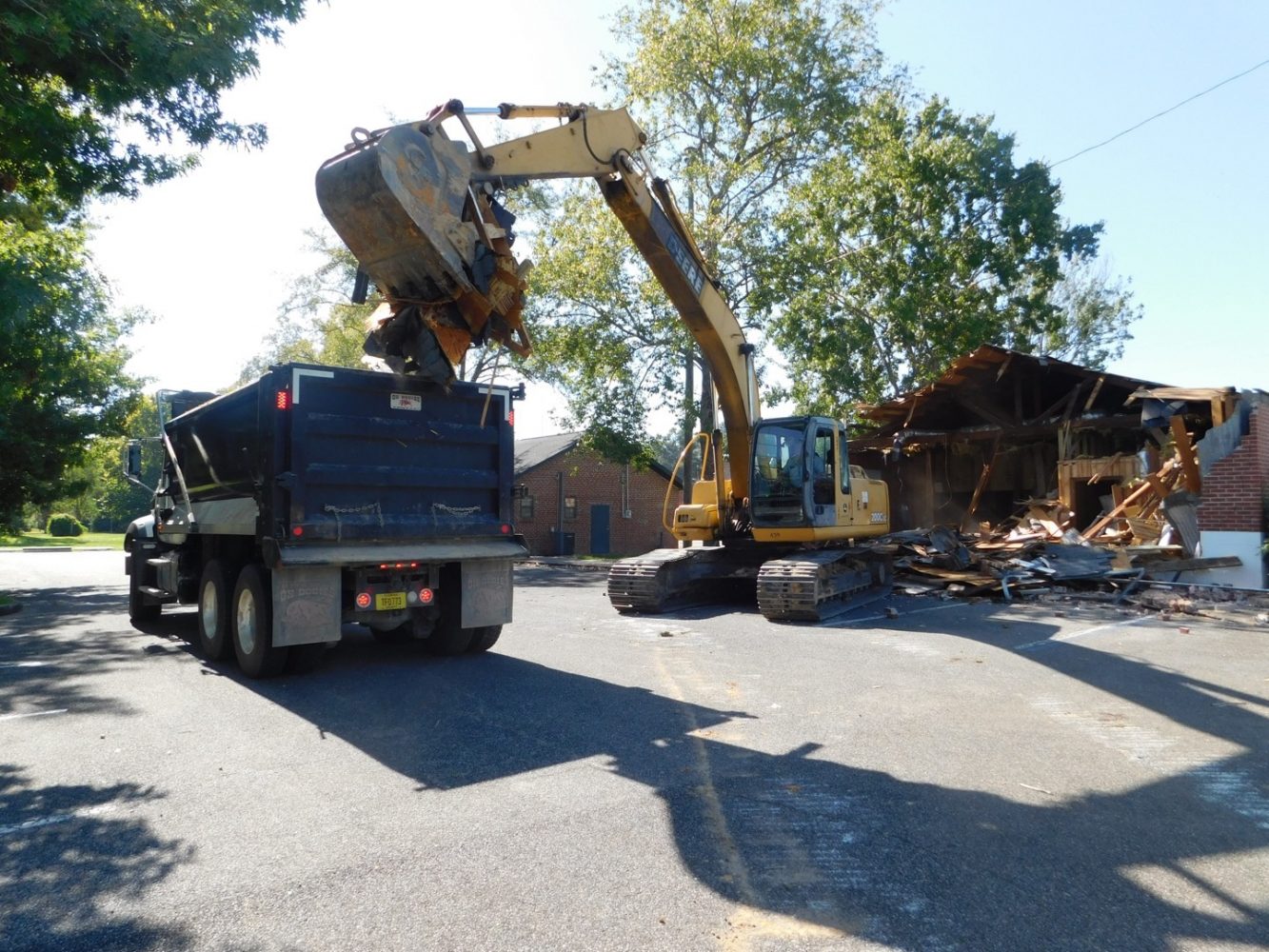
Dust, dirt and dreams
By the fall, Dean’s vision for Greenville appears to be on track. Both the grocery store and community center are scheduled to open before 2020 comes to an end. To celebrate the renewed hope Dean brings to Greenville, The Regal Women’s Club throws a banquet in his honor and presents him with a plaque that reads: Award of Appreciation presented to Edward Walker Dean for dedication and innovative leadership to the Town of Greenville community.
The outpouring of admiration and support nearly brings Dean to tears.
He displays his award on the mantle in his office, a reminder to hold fast to his mission. It feels almost like a game of dominoes – Dean has been lining the pieces up for many months now and they are finally starting to fall, some quite literally.
On a sweltering September day, I catch up with Dean to watch crews demolish a dilapidated senior center. We survey the wreckage once the plumes of dust have settled.
This is the first physical step in Dean’s plans to revitalize the town. It isn’t words said in a meeting or documents filed in an office. This is an action people can see.
This is where Greenville’s new community center will rise, a project that has been two years in the making for Dean. The demolition is not just a means to an end, it is a symbol, a statement to the townspeople on their way to work or school. It’s machinery they can hear from home. This is the first physical step in Dean’s plans to revitalize the town. It isn’t words said in a meeting or documents filed in an office. This is an action people can see.
Dean has brought hope to the town, but he’s taken wisdom in the process. In his two years living in Greenville, Dean has developed an appreciation of the hand-to-plow mentality of rural America. If it’s broken, you fix it. If you don’t know how, learn. It’s a place that lauds calloused hands, where sweat is dignified as a sign of hard work. It is a culture that holds the capable in high esteem and values actions over words.
Where I see dust and dirt, Dean sees a sunlit breezeway rising from the ground where children will play and families will carry pans of baked beans, burgers and slaw from the kitchens to the gathering rooms for family reunions. He sees a place where children can harbor ambition and aspirations, where they will know what it is like to have a community stand behind them. Maybe some can even make it to college without having to become a football star.
“What are you most proud of here?” I ask him.
“I feel that I’ve come here and shown everyone what the potential could be,” he replies.
Potential is much like opportunity. You have to see it to seize it. I never thought that a simple town with complicated problems would be the place to look, but Dean has changed that. I have always known my little town to be teetering on the brink of collapse. But now perhaps, it sits at the precipice of change. I hope the next little girl to grow up in Greenville will see her town in a whole new way.
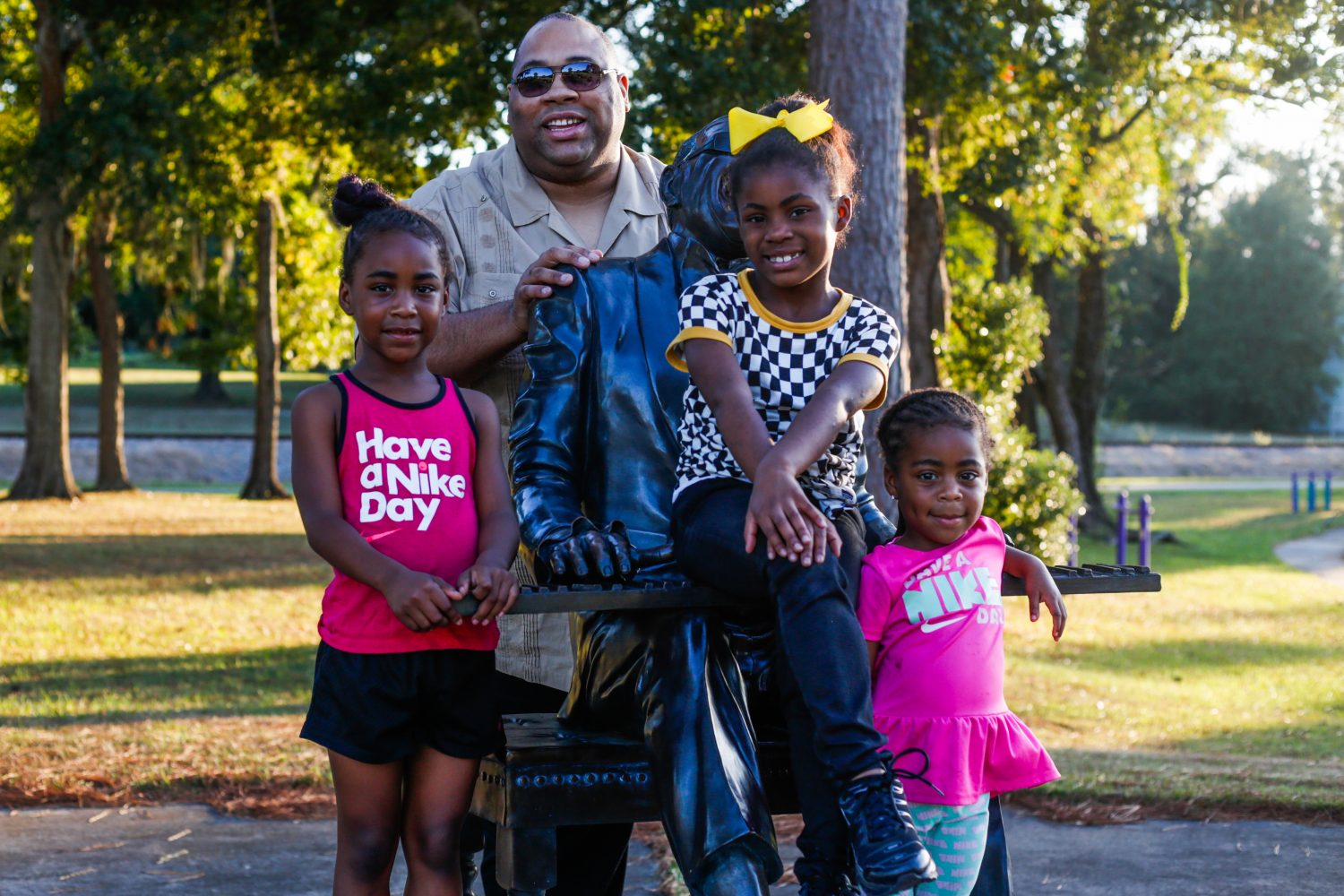
Maybe she will see Greenville as a thriving community once again, with a grocery store, community center, doctor and new school. Her bicycle will carry her down roads without cracks or holes to pick up a bell pepper for dinner, a flu shot to fight the sniffles, and study materials for trade school. She will grow up in a community that knows how to better itself, and she’ll have ideas of her own. She will see an empty building and not see the past through its hollowed shell but be able to imagine a cemented future and what she could make it. She’ll raise her children here, not by default but by choice.
This could be a moment of quiet pride for Dean, a moment to rest on his laurels. But that’s not him. That’s not the man who arrived here to save my hometown.
His eyes survey the rest of Greenville that lies beyond the community center. We both know there’s so much more to be done.
 Special Report from WUFT News
Special Report from WUFT News